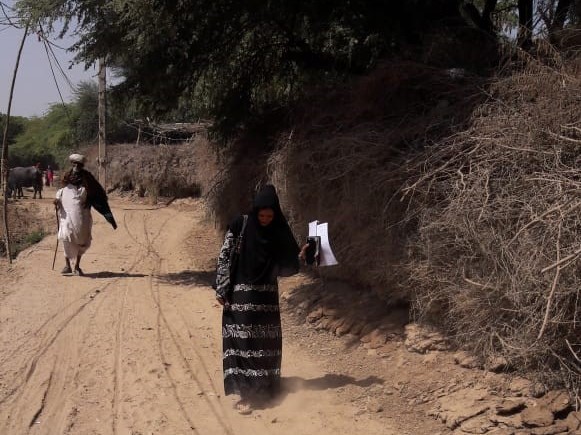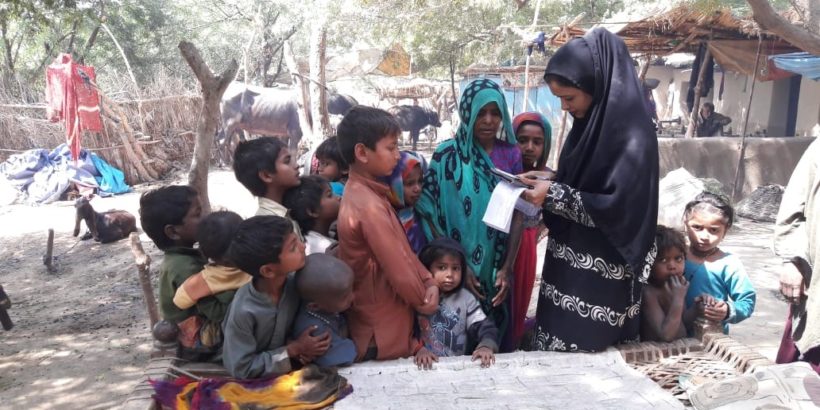Frontline healthcare workers— physicians, nurses, laboratory personnel, community health workers (CHWs), and social mobilizers—confront typhoid in their communities every day, and therefore have an integral role in typhoid prevention and control. During the 11th International Conference on Typhoid and Other Salmonelloses we celebrated a few of these exemplary healthcare workers and the many ways each of them is working to take on typhoid. Now, we are pleased to share their work and highlight the impact each is having in their local community in our new blog series, “Prevention in Action.”
We continue this series with Saira Khawaja, a community healthcare worker with Aga Khan University’s Typhoid Outbreak Investigation and Control team in Pakistan. This is her story.
—
My name is Saira Khawaja. I am a wife, mother of two children, and a community mobilizer with Aga Khan University’s (AKU) Typhoid Outbreak Investigation and Control (TOIC) team in Pakistan.
I first became involved in community health work and mobilization as a way to help feed my family and ensure that my children obtain a good education. However, I also joined so that I could be of service to my community. As a community mobilizer, it is my job to develop strong and trusting relationships with members in my community so that we can successfully deliver healthcare interventions.
When AKU identified the first cases of extensively drug-resistant (XDR) typhoid in Sindh Province in 2016, very few people in my community understood what this meant for them and did not take it seriously. Many did not take precautionary measures to help control the spread of illness, such as practicing good hygiene. As a result, the XDR typhoid outbreak in Pakistan has turned catastrophic with many people in my community, including children, falling ill.

When AKU invited me to join the XDR typhoid outbreak response as a community mobilizer in January 2018, I jumped at the opportunity because I knew that my community desperately needed my help. Understanding that preventive interventions—including vaccines and hygiene—and community engagement are important tools for stopping the spread of typhoid, AKU’s typhoid strategy deploys community mobilizers to distribute information on typhoid, hygiene and immunizations, and also includes vaccinating children with the new typhoid conjugate vaccine (TCV).
Leading this vaccination campaign in my community has been highly motivating and rewarding. Not only am I helping to provide my family with a stable income and more opportunity, but I am also helping to save the lives of many children. This work is very important to improving the health of the people of Pakistan and it would not be made possible without the work of community mobilizers, such as myself, who are known and are trusted by the people we look to serve.
We need TCV vaccination nationally to ease the suffering of the people of Pakistan. I am excited about the recent progress that has been made in my country to keep communities protected against typhoid, and am proud to be a part of this effort along with my colleagues at AKU and the Ministry of National Health Services.
Photos courtesy of Aga Khan University, PAK



